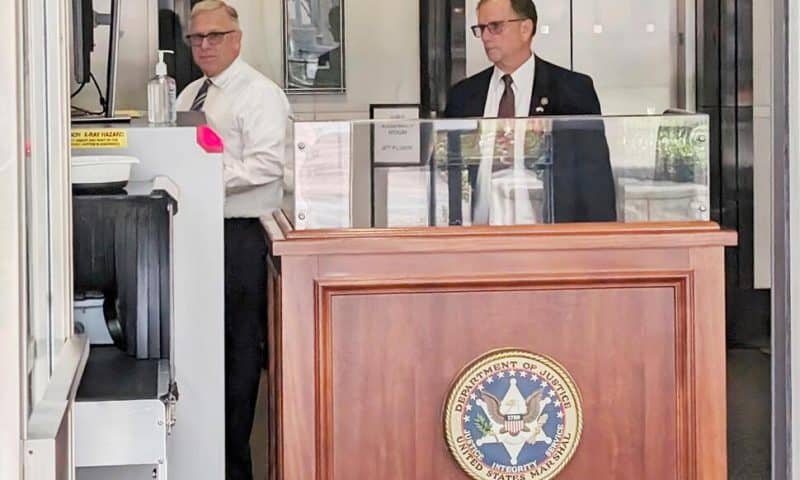Longtime Apple executive Phil Schiller has acknowledged a court-ordered makeover of the U.S. payment system in its iPhone app store hasn’t done much to increase competition — a shortcoming that could result in a federal judge demanding more changes
OAKLAND, Calif. — Longtime Apple executive Phil Schiller on Wednesday acknowledged a court-ordered makeover of the U.S. payment system in its iPhone app store hasn’t done much to increase competition — a shortcoming that could result in a federal judge demanding more changes.
Schiller, who has been overseeing the iPhone app store since its inception in 2008, made the admission during occasionally sheepish testimony about the new payment options that so far have been shunned by all but a few dozen apps since their introduction in January.
“We have worked hard to create this program and I think we need to do a lot more to do to get developers,” Schiller said. “There is work in front of us to make that happen.”
Schiller’s appearance came two weeks into ongoing hearings being held in Oakland, California, federal court to determine whether Apple is properly adhering to an order issued as part of an antitrust case alleging its iPhone app store had turned into an illegal monopoly.
Although U.S. District Judge Yvonne Gonzalez Rogers rejected the monopoly claims made by Epic Games, she ordered Apple to lower the barriers protecting its previously exclusive payment system for in-app digital transactions and allow developers to display links to alternative options.
That shake-up threatens to undercut Apple’s own lucrative in-house payment system, which generates billions of dollars annually through commissions ranging from 15% to 30% of the purchase amount on digital transactions completed within iPhone apps.
After more than two years of ultimately unsuccessful attempts to overturn the order to allow alternative payment links within apps, Apple in January complied with the requirement. As part of the change, Apple set up an application process to approve links to alternative payment systems and imposed fees of 12% to 27% when users clicked on those options.
Epic, the maker of the popular Fortnite video game, asserted Apple’s commissions for clicking on external payment links combined with other costs for payment processing effectively make the alternative more expensive than just paying Apple’s fees for using its standard system.
Prompted by Epic’s objections, Gonzalez Rogers is now mulling whether to hold Apple in contempt of her order and taking more drastic actions aimed at giving consumers more payment choices in hopes of fostering competition that could lower prices.
In the five hearings held on the issue so far, Gonzalez Rogers has repeatedly sounded frustrated with Apple executives while occasionally asking questions suggesting she thinks the iPhone maker is mostly focusing on how to preserve its profit margins and corral most payments to its in-house system.
Although the judge was relatively measured during Schiller’s testimony, she was more blunt last week when was of his subordinates, Carson Oliver, was on the witness stand and she asked whether he understood the intent of her order.
“Did you understand the point was to increase competition?” Gonzalez Rogers said. After Oliver confirmed he did, the judge muttered, “Doesn’t seem like it.”
During his Wednesday testimony, Schiller repeatedly defended Apple’s response to the judge’s order as well-intentioned to allow more competition while protecting the privacy and security of users.
But he had trouble explaining why the company is receiving so few applications to allow external payment links.
In the first four months, only 38 apps have sought approval for external payment links, and only 17 of those currently engaged in digital transactions, according to evidence submitted in the hearings. That is out of about 136,000 apps in the U.S. that have completed digital transactions in the U.S.
Schiller said the facts emerging in the hearings — all of which he has attended — have prompted him to create “an action item” to prod more iPhone apps to take advantage of external payment options.
The hearings are scheduled to resume May 31. Schiller will return to the witness stand to continue his testimony.

